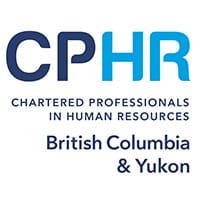| In Garda Security Screening Inc. [1] the grievor, an airport security screening officer at Pearson International Airport, was terminated for failing to self-isolate after being tested for COVID-19. The employer in the case had specifically communicated to its employees the guidelines of the Public Health Agency which required individuals to self-isolate while awaiting the lab results of a COVID-19 test. Contrary to this guideline, the grievor attended work on the same day she was tested for COVID-19. When her test result subsequently came back positive for COVID-19, she falsely denied to the employer that she had attended work on the day of her test. At arbitration she justified her decision to attend work on the day of her COVID-19 test by claiming that she did not feel sick.
At arbitration, the parties acknowledged that all employees, including the grievor, had been made fully aware of the requirement to self-isolate following a COVID-19 test, though the grievor herself claimed she was unaware of the requirement. The arbitrator found this claim to be incredulous “given how notorious the situation was, and given the wall-to-wall reporting of the situation.”
It was apparent from the decision that the grievor had not been truthful to either the employer or before the arbitrator. However, in upholding the termination for just cause, the arbitrator did not focus on the grievor’s dishonesty. Instead, he focused on the grievor’s knowledge of the COVID-19 guidelines and the potential impact of her actions on others:
The grievor put at risk, by returning to work, her colleagues. She also put at risk other persons working at the airport with whom she came into contact. She also put at risk the general public flying from Pearson and, in turn, persons with whom these passengers would have had contact at their destination.
· · ·
The actions of the grievor were a clear violation of the employer’s and public health guidelines. Her claim of not feeling sick is absolutely irrelevant. She was required to isolate, as she knew, for the safety and health of others. She chose not to, thereby putting countless other at risk of illness or death.
The arbitrator found the grievor’s lack of remorse or concern about the potential consequences of her actions was “to say the least, troubling” and he dismissed the grievance accordingly.
In a second case, Aecon Industrial, [2] an arbitrator upheld the termination of an employee who attended work while experiencing symptoms of COVID-19, in breach of the employer’s policy. There were a number of aggravating factors in the case: the grievor had been directed several times not to attend work until he was cleared by the company’s nurse; he dishonestly claimed to be free of COVID-19 symptoms on the employer’s screening questionnaire; he attended a pre-work team meeting exposing his co-workers to potential infection; and he had a record of discipline for two previous safety violations. As a result, the arbitrator upheld the termination for just cause and dismissed the grievance on this basis:
Taking into consideration those two earlier safety issues, the Grievor’s deliberate and cavalier attitude toward the COVID safety risks he represented both to his co-workers and in turn to the Company’s obligations to protect the workplace was unconscionable, unreasonable and totally unacceptable. In all the circumstances, I am satisfied that the Grievor here could not be trusted to avoid engaging in unsafe conduct in the future.
And finally, in a decision rendered last month [3], an arbitrator upheld an employer’s unilaterally imposed, mandatory COVID-19 testing policy for all employees of an elderly care home. Weighing the privacy intrusion of the testing policy against its objective to prevent the spread of the highly infectious and often deadly disease to elderly residents, the arbitrator found the testing policy to be reasonable. She reached this conclusion despite the fact that the care home had experienced no outbreaks and that the residents themselves were not subject to the testing regime. She also rejected the union’s argument for less intrusive methods of disease prevention, such as limiting testing to symptomatic employees.
Significance of these Decisions for Employers
- These decisions are clear, powerful and persuasive. They recognize the extraordinary circumstances created by COVID-19 and the serious nature of an employer’s obligation to ensure a safe workplace in this context. The arbitrators’ explanations of the potential consequences of breaching COVID-19 protocols (as quoted above) will be helpful to employers in their efforts to enforce these essential protocols.
- The decisions also demonstrate the importance of having clearly articulated COVID-19 policies which have also been effectively and demonstrably communicated to all employees.
- A few words of caution are necessary though. All workplaces are different and not every workplace may be seen to require the strictness demanded in public-facing positions in a large, international airport or inherent in a senior’s care home.
- Similarly, in both termination cases, the grievors were unremorseful and failed to acknowledge the dangerous consequences of their actions. This gave the arbitrators no basis to justify reinstatement. The situation could be different with a contrite employee.
Going forward we are likely to see concerns also arise in the difficult areas of privacy rights, the Human Rights Code and Charter requirements. This will be particularly true as the COVID-19 vaccines become available for employees. As always, we will continue to monitor the ongoing developments in this area and would be happy to assist you with these matters.
———————————
[1] Garda Security Screening Inc. -and-. IAM, District 140, [2020] O.L.A.A. No. 162 (Arbitrator Brian Keller)
[2] LIUNA, Ontario Provincial District Council -and- Aecon Industrial, 2020 CanLII 91950 (Arbitrator Joseph Carrier)
[3] Caressant Care Nursing & Retirement Homes -and- CLAC, 2020 CanLII 100531 (Arbitrator Dana Randall) |
